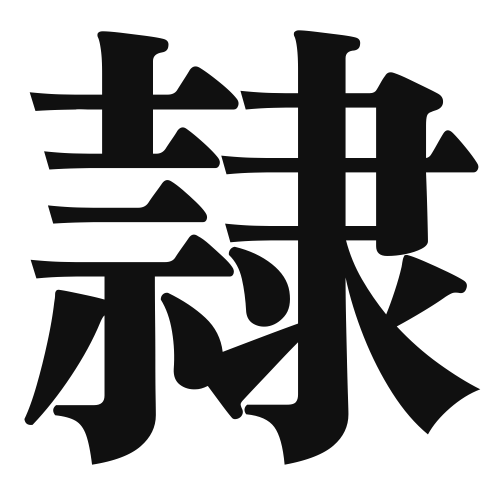1. Overview of Meaning
The kanji “隷” (pronounced “rei” or “dorei”) generally means “slave” or “servant.” It conveys the idea of being under someone else’s control or authority.
2. Formation and Radical
Formation of the Kanji: The kanji “隷” is a phonetic-ideographic character (形声文字). It combines the meaning of “to be under” with a phonetic component that suggests its pronunciation.
Radical: The radical for “隷” is “阜” (meaning “mound” or “hill”), which is often associated with places or structures, indicating a connection to the physical world.
3. Examples of Usage
Common Words and Phrases: Some common words that include “隷” are “隷属” (reizoku – subordination) and “隷書” (reisho – a style of calligraphy).
Example Sentences in Daily Conversation:
- 彼は隷属の状態から解放された。 (Kare wa reizoku no joutai kara kaihou sareta.) – He was freed from a state of servitude.
- 隷書は美しい書体です。 (Reisho wa utsukushii shotai desu.) – The reisho style is a beautiful form of writing.
4. Synonyms and Antonyms
Similar Kanji: A similar kanji is “奴” (dō – servant), which also refers to a person in a subordinate position but can carry a more derogatory connotation.
Opposite Kanji: An antonym is “自由” (jiyū – freedom), which means “freedom” or “liberty,” representing the opposite of being under someone else’s control.
5. Cultural and Historical Background
Connection to Japanese Culture: The concept of “隷” has historical significance in Japan, particularly in the context of feudal systems where individuals were often bound to serve their lords.
Proverbs and Idioms: There are idioms that reflect the idea of servitude, such as “隷属の道” (reizoku no michi – the path of servitude), which can be used to describe a life of subservience.
